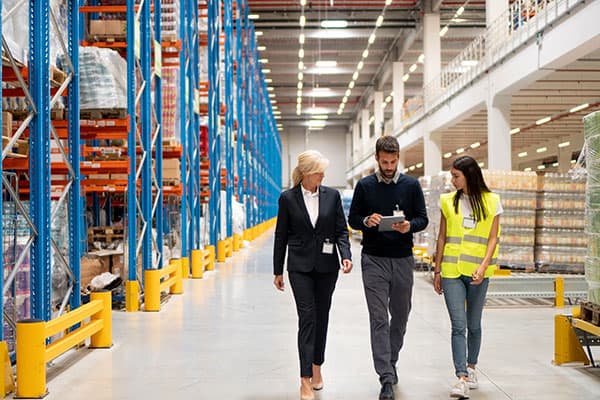Covid-19, blockages in the Suez Canal, and forced diversions from the Red Sea are all highly memorable recent examples of this disruption. Conversely, some of the world’s most profitable companies have shared a common characteristic, being recognised for their ‘elite supply chains’. Amazon, Nestle, Apple, McDonalds, Scheider Electric, Colgate-Palmolive, and P&G all enjoy this distinction.
Business leaders are increasingly drawn from, or come to focus on, supply chains as a value generator and a business protector that can:
- Deliver extremes of customisation in the product range, packaging, and presentation, worldwide, on time.
- Provide ready substitutes to seamlessly switch to when faced with trade barriers, blocked trade routes, or a supply breakdown.
- Offer hyper-personalisation alongside operational excellence, with impeccable credentials on the provenance of materials.
Supply chain excellence is no longer just about getting the right product, at the right time, to the right place. It is also the ability to configure the chain to withstand volatility, be resilient, and support strategic goals.
What might the successful, sustainable supply chain-oriented companies of the future look like?
From short-term gains to long-term value
The first key consideration is what new strategies businesses are looking to adopt, in which the supply chain is a fundamental enabler. A good illustration is the automotive sector. For large manufacturers, value is usually delivered on the sale of a brand-new vehicle. However, many of these companies are now developing long-term lease and maintenance strategies – promoting long term value and paying for usage, rather than ownership.
This marks an important departure from a total focus on short-term performance goals, where there is little incentive to plan for longevity. As these business strategies change, these new products and services depend entirely on reimagining the supply chain from linear to circular; from a source of costs to a generator of value.
From mutual suspicion to targeted collaboration
As companies have sought to maintain their edge and provide fair competition, historically, meaningful collaboration has been challenging. However, organisations and coalitions are taking positive steps by pooling resources and information to demonstrate progress. For example, in fashion and apparel traceability platforms like Worldly, or the retail-oriented BRC Mondra coalition which focuses on automated life cycle assessments (LCAs).
Developing staff capabilities for sustainability is rapidly becoming a key area for organisational training. Whilst, each organisation may face specific sustainability challenges, much of the basic knowledge required to address these challenges is common across sectors. Time and effort can be saved by pooling resources, with the added benefits of building connections, expanding collective understanding and setting consistent standards for providers across the chain.



